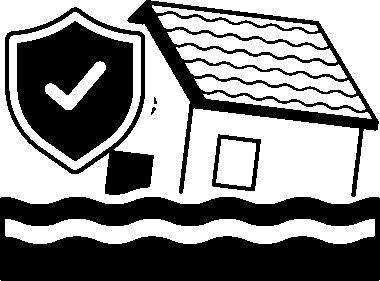Homeowners Insurance: Coverage and Benefits Explained
Homeowners insurance serves as an essential safeguard for your property and personal belongings. It provides critical coverage that protects against various risks, including fire, theft, and natural disasters. Understanding how these insurance policies function is vital for homeowners. Basic homeowners insurance typically covers damage to the home’s structure as well as personal belongings. You can often customize these policies to include additional coverage options. Various factors influence the cost of homeowners insurance, such as your home’s value, location, and the level of coverage you choose. Premiums can vary widely, so it’s essential to shop around and compare quotes. This coverage often extends to liability protection, safeguarding you if someone is injured on your property. Many homeowners underestimate the importance of reading policy terms carefully. Missing fine print can lead to inconvenient surprises during claims. Therefore, it is advisable to consult with a qualified insurance agent. Working with a professional can help you better understand your policy and needs, ensuring adequate protection for both your home and belongings.
There are several key components typical in homeowners insurance policies that every homeowner should be aware of. The dwelling coverage is one of the most significant aspects, providing financial protection for the physical structure of your home. Additionally, personal property coverage protects your belongings against theft or damage. This includes items like furniture, appliances, and electronics. Liability coverage is equally essential; it shields you from legal costs if someone gets injured on your premises and holds you responsible. Furthermore, additional living expenses coverage helps pay for temporary living arrangements if your home becomes uninhabitable from a covered disaster. Understanding the deductible is also crucial; this is the amount you pay out of pocket before insurance kicks in. Policies standardly require you to choose your deductible amount, so consider your financial situation carefully. Another highlight is that some policies offer replacement cost coverage to ensure you can fully replace lost or damaged items. Exploring these options can ensure that your policy aligns with your risk preferences and financial goals, providing peace of mind knowing you’re adequately covered.
Types of Homeowners Insurance Policies
There are multiple types of homeowners insurance policies designed for different needs and circumstances. The most common is the HO-3 policy, which provides broad coverage for the structure of the home and personal property. However, there are alternatives to consider. For example, the HO-1 offers limited coverage and is quite basic, while the HO-2 provides named peril coverage, meaning it only covers specifically listed risks. If you own a condominium, the HO-6 policy is the right fit as it covers personal property, often where the association’s master policy leaves off. Lastly, renters can benefit from HO-4 insurance, which covers personal possessions within a rented space. Each policy type offers varying degrees of protection, so it’s crucial to assess your unique situation before purchasing. Premium costs also vary significantly based on the type of policy. Striking the right balance between coverage and cost can lead to both comprehensive protection and manageable expenses, ensuring you don’t sacrifice necessary coverage to save on premiums.
Understanding exclusions in homeowners insurance policies is vital, as these specify what risks are not covered. Common exclusions include damage from floods, earthquakes, or even regular wear and tear, which can lead to some surprises during the claims process. Homeowners may mistakenly assume their policies cover all incidents, leading to denied claims when disasters strike. Due diligence in recognizing these exclusions will enable you to seek additional coverage, such as flood insurance, if necessary. Insurers often offer riders or endorsements to add coverage for specific items, like jewelry or fine art. Be aware that additional costs may apply in these situations, so budgeting accordingly is essential. Furthermore, proper maintenance of your property decreases the likelihood of filing claims and can positively affect premium costs. Regular inspections and upkeep of your home can also lead to discounts. It is pivotal to maintain updated communication with your insurance provider, allowing them to aid you in navigating provisions and potential adjustments to your policy as your circumstances evolve.
Claims Process and What to Expect
The claims process can sometimes feel daunting, but understanding how it works can simplify the experience when disaster strikes. Notifying your insurance company promptly after a loss is your first step, as many policies require timely reporting. Following this, an insurance adjuster will assess the damage, gathering all relevant details. Having thorough documentation is crucial; this includes taking photos, keeping receipts, and listing damaged items to support your claim. A detailed inventory will expedite the claims process. Be prepared for an in-depth review; transparency with your insurance agent can facilitate smoother interactions. Expect some follow-up calls requesting more information, as insurers want to verify all claims to ensure honest reporting. If your claim is approved, the insurer will issue a payout based on your policy’s terms, typically after subtracting your deductible. If you encounter claim disputes, don’t hesitate to appeal the decision or seek professional assistance in navigating the situation. Understanding your policy will set clear expectations regarding coverage limits and how the process unfolds when you need to file a claim.
In the evolving world of insurance, emerging technologies and changing regulations affect homeowners’ policies and how claims are processed. The advent of online quoting and management tools has made obtaining insurance quicker and more efficient. Through mobile apps, homeowners can easily access their policy information and submit claims at their convenience. This transformation results in enhanced communication between insurers and clients, allowing for real-time updates. However, it’s crucial to remain vigilant about evolving regulations that could impact coverage options and premium costs over time. Regularly reviewing your policy ensures that it reflects current laws, market changes, and your individual needs. Participating in educational workshops or webinars provided by local insurance agents can further enhance your understanding. Staying informed about your rights as a policyholder can empower you and ensure you get fair treatment during claims. As insurance landscapes evolve, making sure you adapt to these changes is key to securing your home effectively. Engaging with your insurance agent can provide tailored strategies based on these developments to ensure you maintain robust protection for your assets.
Final Thoughts on Homeowners Insurance
In summary, understanding homeowners insurance is essential for property protection and financial security. Considerations range from the type of policy, coverage details, exclusions, to the claims process. Adequate homeowners insurance protects your investment and gives peace of mind against unforeseen circumstances. Regularly reviewing and adapting your policy is prudent to ensure it aligns with your evolving needs. Stay informed on current trends and technological advancements in insurance as they can improve your experience. Networking with professionals or joining forums can provide valuable firsthand insights into navigating insurance challenges. Ultimately, the right homeowners insurance policy can offer crucial support when you need it most, providing safety for your family and belongings. With these insights, you’ll be equipped to take actionable steps toward securing a comprehensive homeowners insurance policy. Knowledge is power in financial literacy, especially regarding insurance. Whether you’re a first-time buyer or reassessing your current policy, thorough research paired with professional guidance will help you successfully navigate the world of homeowners insurance.





